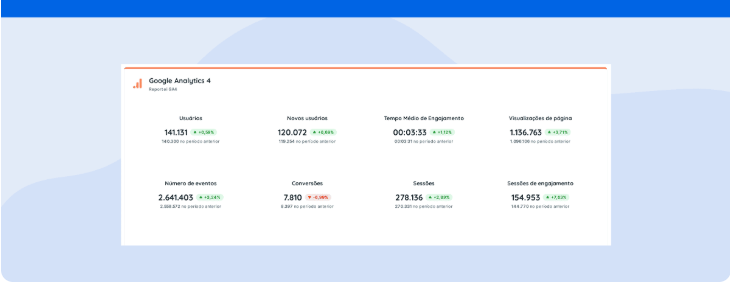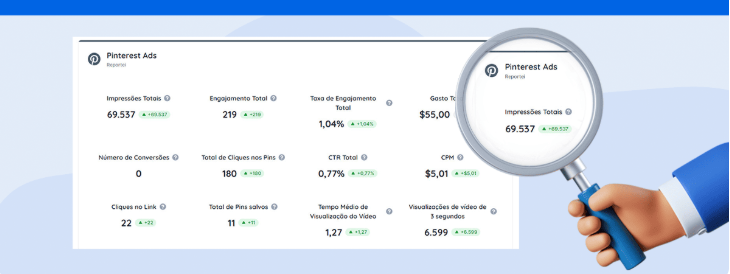Here’s how to choose the most strategic keyword research tool for your business and a couple of tips to help you get the best results
For SEO strategies or ad campaigns, using a good keyword planner is crucial to planning more efficient actions and improving results faster.
Based on the research search terms in line with your business, you can gain valuable insights on related search terms, search volume, competitive density, and the difficulty of organic or paid search ranking.
Still, there are a couple of factors to consider when deciding on the best keyword planner for you. Like what features it offers, how practical generating and interpreting reports is, whether it’s free, and pricing (for paid tools).
To help you out, we’ve compiled this list of tools along with five tips to help your searches get more strategic. Keep reading to find out!
Five keyword research tool options
If you work with digital marketing analysis, there are several options on the market to help you plan keywords efficiently and improve your results. Here are the top 5!
1. Google Keyword Planner
Google Keyword Planner is a Google Ads tool where you can find the best research search terms for your campaigns.
The data comes from the biggest search engine in the world, which makes it possible to:
- not only understand search volume but history too;
- become familiar with the competition in every researched search term;
- gain insights from related search terms;
- and, of course, get an estimate on bidding for your ads.
After researching a term, you can add keywords to your ad strategy and optimize your Google Ads campaigns. Best of all, Google Keyword Planner is 100% free!
2.SEMrush
When it comes to keyword planners, one of the most popular is SEMrush, hands down. Monthly subscriptions start at $119,95/month and give you a wide range of features for working with SEO and Ads.
The advantages don’t stop at its keyword generator if your goal is organic ranking. Besides having a data bank with millions of terms, SEMrush also offers backlink analysis, positioning monitoring, and technical SEO audits.
For paid searches, you have a keyword research tool, competitive density monitoring, expenses optimization, and Google Shopping campaigns monitoring.
And there are other features available to help you plan content marketing, study the market, establish social media strategies, and more.
3. Ahrefs
This is another great tool if you’re looking for an efficient SEO strategy but aren’t exactly an expert on the subject.
With a $99,00/month basic plan you’ll be able to:
- Explore the most relevant keywords based on your audience;
- Track organic search positioning;
- Audit for site optimization;
- Monitor the results of your competitors;
- And plan your content considering the highest performing.
Ahrefs also has a content library to help use the tool as efficiently as possible and learn how to get the best insights.
4.Ubersuggest
Ubersuggest (developed by Neil Patel) is also primarily an SEO tool. The keyword research tool stands out for giving you a complete analysis of search volume, trends over time, related terms that may be valuable, and ranking difficulty.
Like its main competitors (SEMrush, Ahrefs, and Moz), Ubersuggest allows you to audit your site to find where you can improve. You can also monitor ranking on Google and track backlinks.
Other benefits are their SEO training and support, at least three free daily surveys. Ubersuggest is also more accessible than its competitors, with subscriptions starting at $12,00/month.
5.Moz Keyword Explorer
Moz is hands down one of the most popular SEO tools and a direct competitor of SEMrush.
One available feature is its keyword research tool called Keyword Explorer. You can get a Pro subscription (starting at $99,00/month) though you can use it for a few free searches too.
Moz’s data bank has more than 500 million suggestions total to help you look up terms, save lists with the most relevant research search terms, and monitor your results from search mechanisms (among other features).
Tips for making the most of a keyword generator
Besides choosing the ideal keyword planner, you need to know how to gain insight to build efficient SEO or Ads strategies.
We’ve put together these five tips to help you optimize your planning:
- Get to know the market and needs of your audience. what are the pain points of your persona? How are they trying to solve those problems? That’s the first step for effective planning.
- Understand how your content fits into the sales funnel. A good strategy is tied to the sales journey directly. Each stage (top, middle, and bottom) should be well defined.
- Use long-tail keywords. As they’re more specific, this type of keyword attracts a more qualified audience, even if the search volume is lower.
- Carefully analyze data: these tools help you understand how search volume, ranking difficulty, and competitive density are related, helping you find more strategic keywords for your content and ads.
- Monitor your strategy results. Whether for organic ranking or planning ads, monitoring the results you get from using these terms is essential. It will help you figure out what works and plan the next steps.
For a fuller analysis of your results, you can use the metrics available in the tools above or use Google Ads reports for paid campaigns and those on Google Search Console for SEO strategies.



